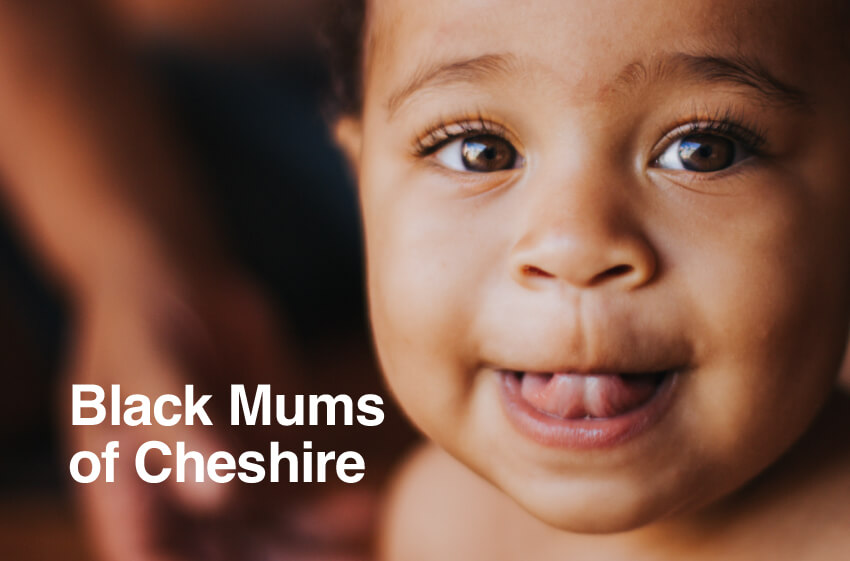In 2017 I became a mother to my first child, my beautiful baby boy. Despite the health scare for us both, it was of course, one of the best days of my life. In April 2021 I became a mother to a beautiful baby girl with a head full of curly hair. On that day, I had to take stock of how truly blessed I was.
But on that very same day, Derek Chauvin, a former Police Officer, was found guilty of the murder of George Floyd by kneeling on his neck for more than nine minutes. On that day, I also had to take stock of the fact that I had two black children. What does that matter? Because, even on my most precious of days, escaping reminders of racial injustices in society and not fearing racism is not within my privilege. Now I had two black children and so I was twice as scared.
During my pregnancies I couldn’t escape the fear that black women are 4x more likely to die in pregnancy and childbirth, in the UK. But racism doesn’t end with safe births. Black boys are more likely to be labelled as naughty, and receive harsher punishments compared to their white counterparts. Black girls are more likely to suffer sexualisation and adultification bias, paving the way for incidents such as Child Q. Research in 2022 by Her Majesty’s Inspectorate of Probation reported:
As indicated in research and literature, Black children are most likely to experience adultification bias due to race, ethnicity and racism acting as compounding factors that hinder child protection responses and professional curiosity (Davis, 2019; Davis and Marsh, 2020, 2022; Farrer, 2022). This group of children are therefore at a heightened risk of their safeguarding needs being unmet.
To further extend Davis and Marsh’s (2020) definition, I argue that the adultification of Black children is a manifestation of racism and must be situated within an historical context of devaluation and dehumanisation (Goff et al., 2014; Farrer, 2022). The preconditions of this form of bias are the legacies of racist tropes which stem from slavery and colonialism.
I needed support and guidance. I had previously reached out to mummy groups for support and friendship. The non-inclusive nature of many mummy spaces in Cheshire meant that I was always the only woman of colour in that space. No one could provide me with support or guidance on these issues of race, as it was not within their lived experience, but also no one wanted to talk about it. It made people feel uncomfortable. This was magnified during BLM2020, and I found myself being left out of social events, never added to the WhatsApp spin off groups, never forging meaningful connections with the other mothers. I felt isolated, misunderstood and I longed for the empathetic embrace of inclusivity, but could not find it in Cheshire. Knowing that there must have been other mothers of colour that felt as I did, I started a Facebook group called ‘Black Mums of Cheshire’ in 2020. I thought maybe I would find a handful of like-minded mothers who I could set up playdates with. I would be able to be my whole self and not have to code-switch, or dilute my blackness, in order to fit in. My children would also benefit from seeing other children of colour. In a county that is 98.9% white English, representation really does matter.
I found many more than a handful of like-minded mums. I found 240 in fact, and that number is growing every day. I heard the distress call made by the mothers who joined my little Facebook group, all of whom were crying out to be included but who had never felt truly welcomed or embraced for themselves in mainstream spaces. The women started to ask each other for advice on things like what hair products to put in their children’s hair, the nearest places to find ethnic food, if anyone knew of a local doula of colour, or an empathetic midwife who understood their fears of 4x more. But more than that, I found a sisterhood of women that understood my fears, cried with me, laughed with me, and proudly raised their fist alongside mine against racial injustice.
The Facebook group turned into a charitable unincorporated association, with a committee of 6, for whom I am the Chair. BMOC was born. We organised and ran parties for the children, wellbeing events for the mothers and educational workshops on racial inclusivity for local gov, health and maternity services in Cheshire. BMOC has two aims; to support ethnic minority mothers through the sharing of lived experiences, morals and values, and to challenge the non-inclusive nature of Cheshire through education and awareness raising. BMOC is not about excluding white mums. There would be no need for this safe space if mainstream mum groups were at all inclusive.
In May of this year, members of the Black Mums of Cheshire were interviewed by BBC Radio Stokes Bongi Msimanga for a Podcast which was entitled ‘Finding Your Tribe’. I have provided the link below and I highly recommend listening to the episode. Our collective lived experiences provide an impactful education to the barriers faced within intersectionality and the true importance of inclusivity.
